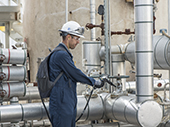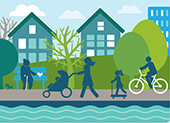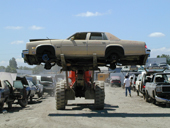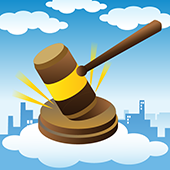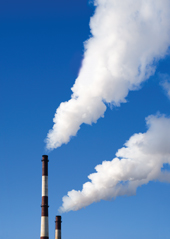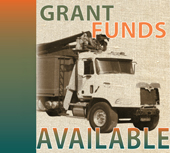|
|

|
|
|
|
November 2021 l Volume 2021-4
|
|
|
|
|
|
|
In this issue, you’ll find articles about the relaunch of the Air District’s Clean Cars for All program, an upcoming Air District Board hearing to consider adoption of permitting rule amendments, the Air District’s new web page with environmental justice planning policy guidance for cities and counties, and the latest Vehicle Buy Back program parameters. Recent settlements with Shell and Tesoro are also covered, as well as a summary of current grant opportunities.
|
|
|
|
|
|
|
|
|
|
|
|
|
|
Air District Relaunches Clean Cars for All Program
|
|
| | |
|
The Air District has relaunched its Clean Cars for All program, with more than $8 million available for qualified residents to purchase a clean air vehicle. The program provides up to $9,500 for income-qualified members of communities disproportionately affected by air pollution to retire older vehicles and replace them with a new or used hybrid, plug-in hybrid, electric, or fuel cell vehicle, or get a transit card or e-bike. Additionally, up to $2,000 in funding is available for home-charging equipment and installation for purchasing a plug-in hybrid or electric vehicle.
The Air District launched the program in March of 2019 as part of a broad effort to make clean air vehicles affordable options for residents across the Bay Area. Equitable access to clean air vehicles also ensures that all residents benefit from lower fuel and maintenance costs as well as the improved driving experience. The California Air Resources Board has recently awarded the Air District an additional $8.33 million to continue support for this program.
Participating residents may choose one of the following clean air transportation options to replace their 2005 or older vehicle that will be scrapped:
- Electric Vehicles operate solely on their electric motor. Electric vehicle batteries recharge by plugging into an outlet or charging station.
- Fuel Cell Electric Vehicles use hydrogen fuel and an electric motor instead of a gasoline engine.
- Plug-In Hybrid Electric Vehicles combine an electric motor with a gasoline engine. Plug-in hybrid batteries are recharged by the gasoline-powered motor during braking and by plugging into an outlet or charging station.
- Hybrid Electric Vehicles combine an electric motor with a gasoline engine. These vehicles cannot be "plugged-in" to be recharged. The gasoline-powered motor also acts as a generator to recharge batteries on hybrids.
- E-bike or Transit Card that can be used for public transportation on Bay Area transit systems.
Applicants must live in a designated, eligible community in the Bay Area and their household income must fall under a specified limit based on their household size. For more program details, information about how to apply, to complete an application, or to verify eligibility, visit the Air District's Clean Cars for All website.
Clean Cars for All is part of California Climate Investments, a statewide initiative that puts billions of cap-and-trade dollars to work reducing greenhouse gas emissions, strengthening the economy, and improving public health and the environment — particularly in disadvantaged communities.
|
|
|
|
|
|
|
|
|
|
|
|
Air District to Hold Public Hearing on Proposed Amendments to Permitting Rules
|
|
| | |
|
On Wednesday, December 15, 2021, the Air District Board of Directors will conduct a public hearing to consider adoption of proposed amendments to the following rules:
- Regulation 2, Rule 1: General Requirements (Rule 2-1)
- Regulation 2, Rule 5: New Source Review of Toxic Air Contaminants (Rule 2-5)
The proposed amendments to Rule 2-1 and Rule 2-5 address how the Air District issues permits for sources of air pollution, with particular emphasis on increasing health protection in communities overburdened by pollution and health vulnerabilities.
The Board will also consider adoption of a Negative Declaration pursuant to the California Environmental Quality Act.
This meeting will be conducted remotely; the public may observe this meeting and provide verbal comments during the meeting through the webcast by clicking the meeting link available on the Air District’s home page and Board Agendas and Minutes web page.
The Public Hearing Notice, proposed rule amendments, CEQA Initial Study and proposed Negative Declaration, CEQA Notice of Intent, staff report, Socioeconomic Impact Report, and supporting documents are available on the Regulation 2 Permits web page.
Public Comment on the proposed amendments:
Comments relating to the proposed amended rule and staff report should be addressed to Mark Tang, Bay Area Air Quality Management District, 375 Beale Street, Suite 600, San Francisco, CA 94105.
Comments may also be sent by e-mail to mtang@baaqmd.gov. Written comments on the proposed amended rules and staff report will be accepted from October 19 until November 18, at 5 PM. Verbal comments are welcome up to the day of, and during, the Public Hearing.
|
|
|
|
|
|
|
|
|
|
|
|
Air District Releases Pioneering Air Pollution Policy Resources for SB 1000
|
|
| | |
|
In October, the Air District released the Senate Bill 1000 Pioneering Air Pollution Policy Initiatives for Environmental Justice web page.
This resource page provides information, recommendations and technical tools to assist local cities and counties in updating their general plans to include an environmental justice element. These initial policies focus specifically on air pollution mitigations for sensitive land-uses along freeway corridors and residential-industrial interface areas. These policies are culled from ongoing work the Air District has supported, as well as other innovative policies that have been implemented across California or, in some cases, nationally or internationally.
This web page will be updated periodically, and these policies can serve as templates for constructing “best practice” air quality policies applicable to each local context. The Air District and staff are also generally available for technical assistance and data needs pertaining to air quality, air pollution emission sources and exposure impacts.
SB 1000 Background
In 2016, the state legislature passed Senate Bill 1000, requiring cities and counties with disadvantaged communities to incorporate environmental justice policies into their general plans, either in a separate element or by integrating related goals, policies, and objectives throughout the other elements. This inclusion must happen upon the adoption or next revision of two or more elements. One of the key mandated sections for an environmental justice element is to address air quality impacts and air pollution exposure.
For further information, please see the SB 1000 Workshop Presentations “Helping Cities and Counties Adopt SB1000” from a recent regional technical assistance forum the Air District held in conjunction with the Metropolitan Transportation Commission and Governor’s Office of Planning and Research.
|
|
|
|
|
|
|
|
|
|
|
|
Air District Offers $1,200 to Scrap Old Cars Through the Vehicle Buy Back Program
|
|
| | |
|
The Air District is offering incentives of $1,200 through the Vehicle Buy Back Program for Bay Area residents to scrap 1997 and older vehicles to improve local air quality.
The Vehicle Buy Back Program pays owners of older, more highly polluting cars and small trucks to voluntarily retire their vehicles. Older vehicles lack modern emission control technology and pollute at a higher rate than newer models. Eligibility requirements for the Vehicle Buy Back Program include:
- Vehicle must be 1997 model year or older
- Vehicle must be currently registered as operable and must be drivable
- Vehicle must have been registered in the Bay Area for the past 24 months
- Vehicles within 60 days of a required smog check must take and pass smog check
This program reduces air pollutants from vehicle exhaust, which contains fine particles and ozone precursors, the main ingredients in smog. These pollutants contribute to respiratory diseases and increased mortality rates. Retiring older vehicles also reduces carbon dioxide, a potent greenhouse gas that contributes to climate change.
Since 1996, the Air District’s Vehicle Buy Back Program has retired over 90,000 cars, vans, pickup trucks and SUVs. For each pre-1997 vehicle removed from Bay Area roads, an estimated 75 pounds of air pollution is prevented from being emitted into the air annually. In 2020, 3,000 vehicles were retired, representing 91 tons of air pollution having been removed.
The State of California also operates a related program, the Consumer Assistance Program, that offers eligible consumers vehicle retirement options for vehicles that do not pass smog check.
|
|
|
|
|
|
|
|
|
|
|
|
Air District Settles Case with Shell Oil Products US
|
|
| | |
|
In October, the Air District announced that Shell Oil Products US, has agreed to pay $433,000 to settle violations at its former refinery in Martinez.
This settlement covers 44 notices of violation issued to the company for non-compliance with air quality regulations at its operations that occurred in 2017, 2018 and 2019. The violations addressed in this settlement include:
- Extinguishment of flare pilots, resulting in emissions of total organic compounds and hydrogen sulfide
- Various excess emissions violations, including hydrogen sulfide, sulfur dioxide and nitrogen oxide control violations; tank seal gaps; and visible emissions
- Various permitting violations
- Recordkeeping, monitoring and reporting violations
All the violations that led to this settlement have been corrected.
The Air District issues Notices of Violation when facilities violate a specific air quality regulation or rule. Violators are generally required to respond to the notice within 10 days and submit a description of the actions they will take to correct the problem. These actions can include shutting down certain operations immediately or changing operations or equipment to come into compliance.
All settlement funds will be used to fund Air District activities such as the inspection and enforcement activities that led to this settlement.
|
|
|
|
|
|
|
|
|
|
|
|
Air District Settles Case with Tesoro Refining & Marketing Company
|
|
| | |
|
In September, Tesoro Refining & Marketing Company agreed to pay the Air District $2,227,000 to settle violations at its refinery in Martinez.
This settlement covers 58 Notices of Violation issued for air quality violations at its Golden Eagle Refinery between 2014 and 2018. The violations addressed in this settlement include:
- The 2014 turnaround flaring event that caused continuous flaring during Tesoro's 55-day turnaround, in violation of multiple Air District and federal regulations, producing significant volatile organic compounds, hydrogen sulfide, sulfur dioxide and methane emissions
- Various permitting violations
- Various excess emissions violations, including crude unit vapor leaks causing excess volatile organic compound emissions, gas turbine and furnace nitrogen oxide emission control issues, failed source tests, tank seal gaps and other leaks, sulfur dioxide control violations, and visible emissions
- Recordkeeping, monitoring and reporting violations
All the violations that led to this settlement have been corrected.
All settlement funds will be used to fund Air District activities such as the inspection and enforcement activities that led to this settlement.
|
|
|
|
|
|
|
|
|
|
|
|
Air District Offers Millions in Grants
|
|
| | |
|
The Air District administers a number of grant funding programs that offer incentives for clean air projects. Grant Funding for Clean Air Projects
Grant programs for Bay Area businesses and public agencies:
- Heavy-Duty Mobile and Stationary Equipment Replacement and Zero-Emission Infrastructure Program
Over $40M* in funding is available for eligible projects that reduce toxic air emissions and ozone-forming pollutants through the scrap and replacement of older, high-polluting vehicles and equipment. Eligible project categories include but are not limited to upgrades or replacements of:
- Trucks, emergency vehicles, and transportation refrigeration units
- Transit buses, school buses and shuttles
- Off-road construction, industrial, and agricultural equipment, for example: dozers, forklifts, tractors, ag pumps, and portable engines
- Off-road port and freight equipment, including cargo handling equipment and airport GSE
- Marine vessel engines and locomotives.
- Refueling infrastructure that supports zero-emission vehicles, including battery-electric and hydrogen fuel-cell vehicles
Applications are being accepted on a first come, first-served basis. At least 50 percent of program funds must be awarded to projects that operate in or that benefit low-income areas and areas that are most highly impacted by air pollution, including the AB 617-identified communities of West Oakland, Richmond-San Pablo, East Oakland/San Leandro, Eastern San Francisco, Pittsburg-Bay Point area, San Jose, Tri-Valley area, and Vallejo. For the remainder of 2021, applications for projects not benefitting priority areas might be waitlisted until additional funding becomes available. Apply at www.baaqmd.gov/moyer.
*Funding available is based on the Air District’s current best estimate for availability through mid-2022 and will be updated accordingly as funds are awarded and new funding sources are secured. Projects are funded by the Carl Moyer Program, Community Health Protection Program, Transportation Fund for Clean Air, Mobile Source Incentive Fund, and Funding Agricultural Replacement Measures for Emission Reductions (FARMER) program.
- Goods Movement Emission Reduction Program (non-truck categories) – Up to $20 million is available for projects that will replace (upgrade) vehicles and equipment used in freight movement activities in California. Eligible equipment include: cargo-handling equipment such as forklifts, yard trucks, and rubber-tired gantry cranes (RTG); transportation refrigeration units (TRU); insulated cold-storage trailers at grocery retail stores; and freight locomotives. Funding is also available for hydrogen fueling/battery-charging infrastructure, and electric power plug to assist owners of freight movement equipment to incorporate zero- or near-zero-emissions equipment into their fleet and for berth electrification and emissions capture and control equipment at ports. Applications are being accepted until December 17, 2021. www.baaqmd.gov/goods
- Loan Guarantees and Low-Interest Financing: Climate Tech Finance Program – Subsidized financing is available to support the development and purchase of climate technologies. Companies can apply for loan guarantees of up to 90 percent to grow their business. Public facilities can apply for loans up to $30 million over 30 years. This program is open and accepting applications now. www.baaqmd.gov/ctf
- COMING SOON! Charge! Program for electric vehicle charging projects preparing to open by end of 2021. Draft Charge! program guidelines are available for comment. Please submit your comments to dfung@baaqmd.gov by Monday, November 15, 2021. www.baaqmd.gov/charge
Grant programs available to Bay Area residents:
- Passenger Car and Light-Duty Truck Retirement – The Vehicle Buy Back Program pays Bay Area residents $1,200 per vehicle to turn in their operable, registered, model year 1997 and older passenger car or light-duty truck for scrapping. www.baaqmd.gov/vbb
- OPEN NOW! Clean Cars for All Program, Light-Duty Vehicle Replacement – The Clean Cars for All Program is open to all income-qualified Bay Area residents. The program provides varying incentives to retire older, high-polluting vehicles and replace them with newer, cleaner vehicles or with alternative transportation options (e.g. Clipper card). Eligible vehicles for purchase or lease include hybrid electric, plug-in hybrid, or electric vehicles. www.baaqmd.gov/cleancarsforall
Other state-wide grant programs funded by Volkswagen NOx Mitigation Trust (only the first is administered by the Bay Area Air District):
- VW Zero-Emission Freight and Marine Program – Approximately $34 million in Volkswagen Environmental Mitigation Trust funding is available statewide to owners of eligible equipment. Equipment and activities that are eligible for VW funding for new, commercially available zero-emission technologies include:
- scrap and replacement of airport ground support equipment
- scrap and replacement of heavy-lift forklifts
- scrap and replacement of port cargo handling equipment
- scrap and re-power of engines of ferry, tugboats, or towboats
- installation of portside oceangoing vessel shore power systems at berths.
Applications are being accepted on a first come, first-served basis until March 22, 2022, or until all funds are awarded. At least 75 percent of funding will be awarded to projects that reduce emissions in California’s disadvantaged and low-income communities. https://www.californiavwtrust.org/zero-freight-marine/
- VW Combustion Freight and Marine Projects – Approximately $26 million is available statewide to accelerate the replacement of older, higher polluting diesel engines with the cleanest available technologies. Equipment eligible for replacement includes Class 7 and 8 freight trucks (including waste haulers, dump trucks, and concrete mixers) or their engines (2012 model year and older) that are compliant with current regulations; freight switcher locomotives or their engines (pre-Tier 1); and ferry, tugboat, and towboat engines (pre-Tier 3). This solicitation is open and accepting applications on a first-come, first-served basis until all funds are fully allocated. https://xappprod.aqmd.gov/vw/combustion.html
- VW Zero-Emission Transit and Shuttle Buses – Funding is available to owners of bus fleets that operate in California to support early adoption of zero-emission bus technologies to reduce harmful exposure for the state’s most sensitive populations. This program is administered by the San Joaquin Valley Air Pollution Control District. The zero-emission school bus bin is now oversubscribed. This solicitation is open and accepting applications for transit and shuttle buses on a first-come, first-served basis. http://vwbusmoney.valleyair.org/
|
|
|
|
|
|
|
|
|
|
|
Air District Events
|
|
This winter, the Air District and Spare the Air will be participating in the following outreach event.
November - January
Christmas in the Park - San Jose (drive-by event)
November 27 - January 3
|
|
|
|
|
|
|
|
|
|
|



